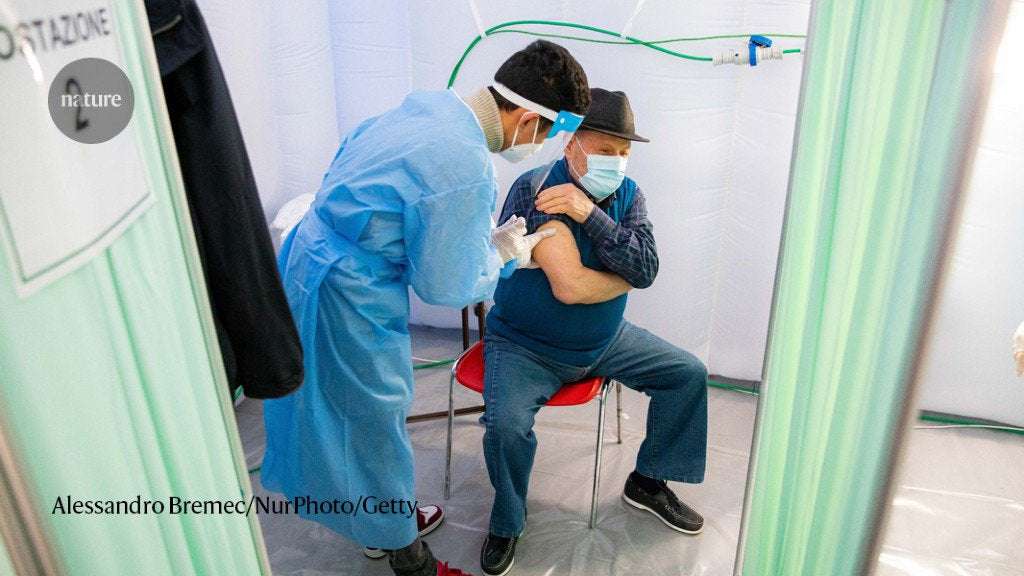Views on vaccination are coloured by an individual’s stance on science — and by their society’s stance, too.
Ample evidence shows that people tend to trust vaccines if they also trust science in general. Now, survey data from 126 countries suggest that people also tend to trust vaccines if they live in countries where confidence in science is high.
Public-health officials around the world are struggling to overcome hesitance about vaccines that protect against COVID-19 and other diseases. To understand how societal attitudes influence individual hesitance, Patrick Sturgis at the London School of Economics and Political Science and his colleagues analysed data from more than 120,000 survey respondents to assess each person’s confidence in vaccines in the context of broader trust in science in their country.
The team found that individual vaccine confidence is highest in the countries with the greatest trust in science as a whole, regardless of a person’s own opinions about science. This correlation is strongest when there is country-wide consensus that science and scientists are trustworthy.
The authors suggest that this insight could lead to new research into how societal consensus around trust in science can be used to promote effective vaccine strategies.

IamnotaMaggot on May 22nd, 2021 at 14:15 UTC »
I thought the idea of science is not to trust but to verify.
brucekeller on May 22nd, 2021 at 07:20 UTC »
Would be kind of sad if the Tuskegee experiments etc., ended up still having an impact on mortality due to a lack of trust in science from certain communities.
GroundTeaLeaves on May 22nd, 2021 at 07:17 UTC »
What dictates if the people, in a country, has a high degree of confidence in science?